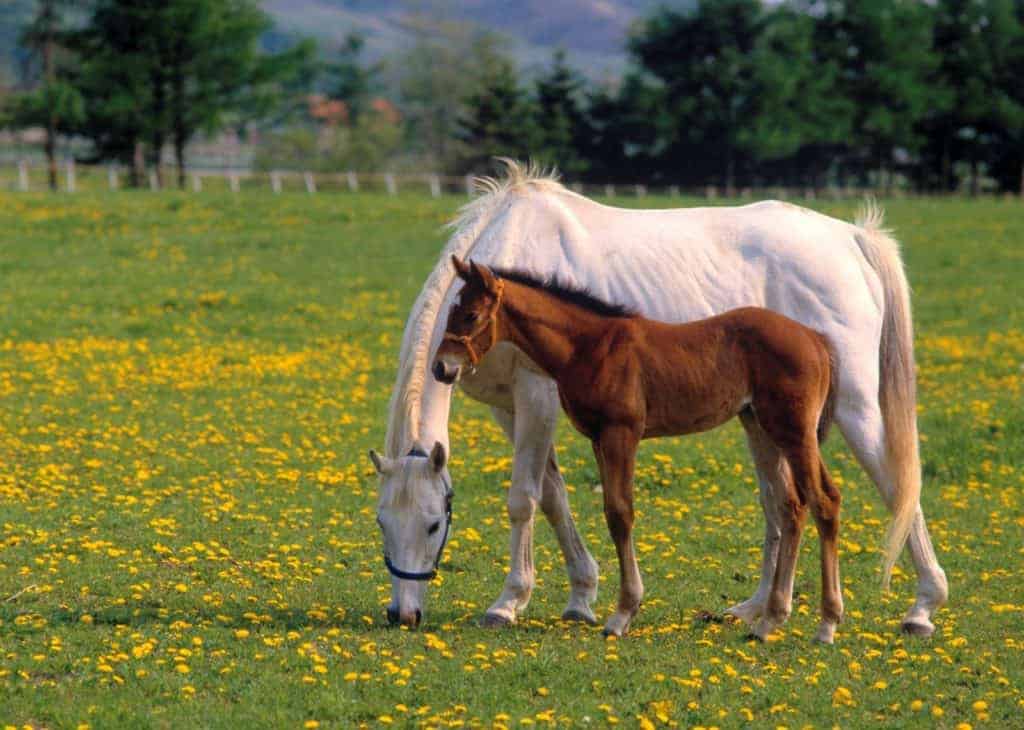
Rationing Hay for Horses With Metabolic Problems
Sourcing lower-energy hay and implementing slow-feeding strategies can help reduce your horse’s risk of becoming obese and developing metabolic problems.
Proper feeding practices for foals, adult horses, and older horses

Sourcing lower-energy hay and implementing slow-feeding strategies can help reduce your horse’s risk of becoming obese and developing metabolic problems.

Horses need the essential nutrient vitamin E for proper muscle and cell function. Here’s how you can be sure you’re meeting their requirements.

An equine nutrition expert addresses toplines, horse protein needs, and if whey is the way to go.

Although researchers have shown horses prefer untreated hay, it is safe for horses to eat hay treated with preservatives. An equine nutritionist explains why.

Your horse’s nutritional requirements depend on his life stage and individual needs.

Discover why this common pasture grass is good for grazing but bad for broodmares.

Adding oil to your horse’s diet can improve coat quality and weight gain. An equine nutritionist describes factors to consider before choosing an oil to feed your horse.

Find out how your horse’s diet could support shedding and his incoming summer coat.

Learn how to adjust your mare’s diet to support a healthy pregnancy, ensure adequate milk production, and maintain her body condition during this critical time.

Find out why your horse might be more prone to impaction colic during winter and how you can reduce the risk.

Learn how to tailor your mare and foal’s feeding program from late pregnancy to weaning with expert guidance.

Understanding new research developments, sponsored by Nutramax Laboratories Veterinary Sciences, Inc.

An equine nutritionist explains the best way to switch your horse to a new hay and what to do if you have limited hay storage.

Proteins and the amino acids that form them play important roles in the horse’s body, from muscle building and function to neurotransmission and hormone synthesis.

An equine nutritionist explains why you should consider your individual horse’s needs and forage source before choosing a ration balancer.

Can feeding hay cut later in the season lead to impaction colic in horses?
Stay on top of the most recent Horse Health news with
"*" indicates required fields